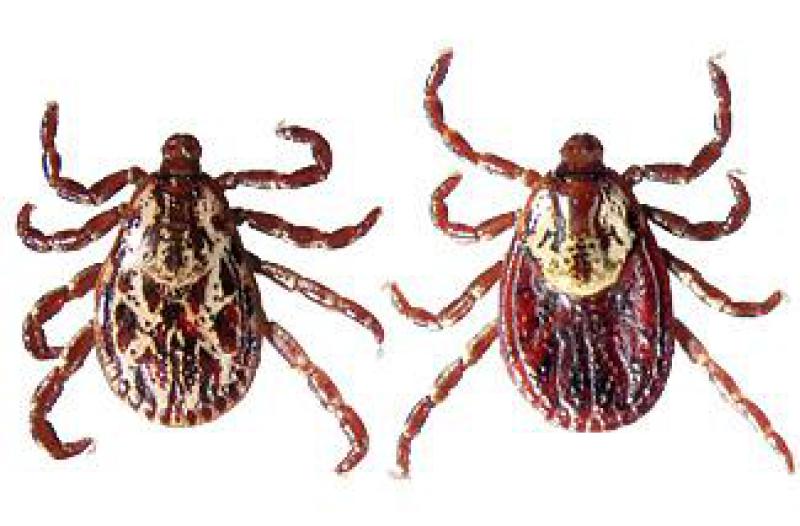Ticks and Lyme Disease
There are two common types of ticks in NYS, the dog tick and the deer tick. Ticks are found most often in shady, moist areas. They cling to tall grass, brush and shrubs, usually no more than a few feet off the ground. They also live in lawns and gardens, especially at the edges of woods and around old stone walls. Once the temperature reaches 40⁰F, ticks will begin to come out from their winter hiding spots—even if there is still snow on the ground
Tick Borne Illness
Ticks can spread diseases that can make you very sick. Diseases spread by ticks are called “tick-borne.” Lyme disease is the most common tick-borne illness in Clinton County. A few of the other serious diseases spread by ticks include Rocky Mountain Spotted Fever, Babesiosis, Anaplasmosis and Powassan virus. These diseases are less common but still a concern and are becoming more common in warmer climates. Ticks can also be co-infected or have more than one disease at a time.The most common symptoms of tick-related illnesses include: fever and/ or chills; aches and pains; and rash.
How Can I Protect Myself?
Your best protection is to avoid contact with soil, leaf litter and vegetation. However, if you garden, hike, camp, hunt, work, or otherwise spend time in the outdoors, you can still protect yourself:
- Wear light-colored clothing
- Wear enclosed shoes, long pants and a long-sleeved shirt
- Check clothes and any exposed skin frequently for ticks while outdoors
- Consider using insect repellent
- Stay on clear, well-traveled trail and avoid contacting vegetation
- Avoid sitting directly on the ground or on stone walls
- Keep long hair tied back
- Do a full-body tick checks throughout your time outdoors
Updated 06/18/2024


































